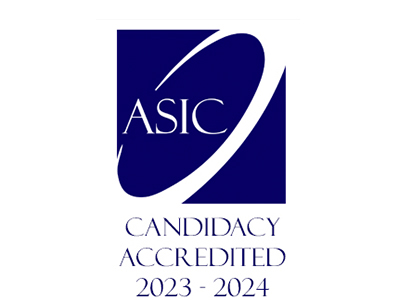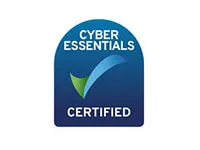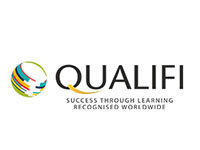Transnational Education Model: A Game Changer for Pakistani Students
In an era marked by globalization and technological advancements, education is no longer confined by geographical boundaries. Transnational education (TNE) has emerged as a transformative model, offering students access to UK qualifications such as International Foundation Year Undergraduate and Postgraduate degree programmes in Pakistan without the need to relocate. This model holds particular significance for Pakistani students, providing them with opportunities to gain high-quality education from reputable foreign institutions, most notably from the United Kingdom. Let’s look into what TNE is, why it matters, and how it impacts Pakistani students.
What Is Transnational Education (TNE)?
Transnational education refers to educational programmes and qualifications delivered across national borders. It involves partnerships between institutions from different countries, allowing students to access education that combines the strengths and resources of both partners. Here’s why TNE matters:
Quality Education
Collaborating with reputable foreign institutions ensures access to high-quality education. UK universities, in particular, are known for their academic excellence and rigorous standards. Through TNE programmes, Pakistani students can earn qualifications that are recognized globally, enhancing their academic credentials and professional standing. Programmes offered by Ignition Pro in Pakistan include Computing, Business, Health & Social Care, Hospitality & Tourism, Fashion & Textiles and many more are accredited by the UK awarding bodies NCC Education and OTHM opening ways for Pakistani students towards quality education.
Cost-Effectiveness
For many Pakistani students, studying abroad is a dream constrained by financial limitations. TNE offers a cost-effective alternative, allowing students to pursue a UK qualification within Pakistan. By eliminating the need for travel, accommodation, and living expenses associated with studying overseas, TNE makes high-quality education more accessible and affordable.
Flexible Learning
TNE programmes often feature flexible study modes, including online courses, blended learning, and part-time options. This flexibility is particularly beneficial for students who need to balance their studies with work or family commitments. The adaptability of TNE programmes ensures that students can tailor their education to fit their personal circumstances, enhancing their learning experience and outcomes.
Impact on Pakistani Students
The TNE model has a profound impact on Pakistani students, influencing various aspects of their academic and professional lives.
Enhanced Employability
A UK qualification in Pakistan significantly enhances graduates’ employability. Employers in Pakistan and abroad recognize the value of degrees from reputable institutions, leading to better job prospects and career advancement opportunities. Graduates of TNE programmes are often seen as having an edge in the competitive job market due to the quality and rigour of their education.
Skill Development
TNE programs emphasize the development of practical skills, critical thinking, and problem-solving abilities. These competencies are crucial for success in today’s dynamic and fast-paced professional environments. By engaging in TNE, students acquire relevant skills that are directly applicable to their chosen fields, making them well-prepared for the challenges of their careers.
Networking Opportunities
TNE facilitates valuable networking opportunities. Students collaborating with international peers and faculty members build connections that can lead to research collaborations, job referrals, and lifelong friendships. These networks extend beyond borders, providing students with a global support system that can be invaluable throughout their careers.
Cultural Enrichment
Exposure to diverse cultures through TNE fosters tolerance, empathy, and global citizenship. Students learn to appreciate different perspectives and develop a broader worldview. This cultural enrichment is not only personally fulfilling but also professionally advantageous in an increasingly interconnected world.
Challenges and Considerations
While TNE offers significant benefits, it also faces challenges that need to be addressed to ensure its effectiveness and accessibility.
Regulatory Compliance
Ensuring that TNE programmes align with local regulations and quality assurance mechanisms is crucial. Regulatory frameworks must be clear, consistent, and supportive of TNE initiatives. This involves collaboration between local educational authorities and foreign institutions to maintain standards and protect the interests of students.
Equity
Access to TNE should be equitable, reaching students from all socioeconomic backgrounds. Financial barriers should be mitigated through scholarships, financial aid, and other support mechanisms. Ensuring that TNE programmes are accessible to a diverse student population is essential for promoting inclusivity and social mobility.
Faculty Development
Training local faculty to effectively deliver TNE programmes is another critical consideration. Investing in the professional development of local educators ensures that they are equipped with the skills and knowledge needed to uphold the standards of the partnering foreign institutions. This enhances the quality of education and supports the sustainability of TNE initiatives.
Recognition
Ensuring that employers and institutions recognize TNE qualifications is vital for their value and acceptance. Efforts should be made to promote the credibility and legitimacy of TNE degrees and certifications among stakeholders in the job market and higher education sector.
Conclusion
Transnational education is a game changer for Pakistani students, offering them unprecedented academic and professional growth opportunities. By addressing the challenges and fostering collaboration between local and foreign institutions, TNE can create a win-win situation for students and educational providers. One game changer is the courses Ignition Pro offers students such as Foundation, Undergraduate and Postgraduate in Pakistan. The continued development and expansion of TNE programmes hold the promise of transforming the educational landscape in Pakistan, contributing to the country’s progress and integration into the global knowledge economy.







.svg)







